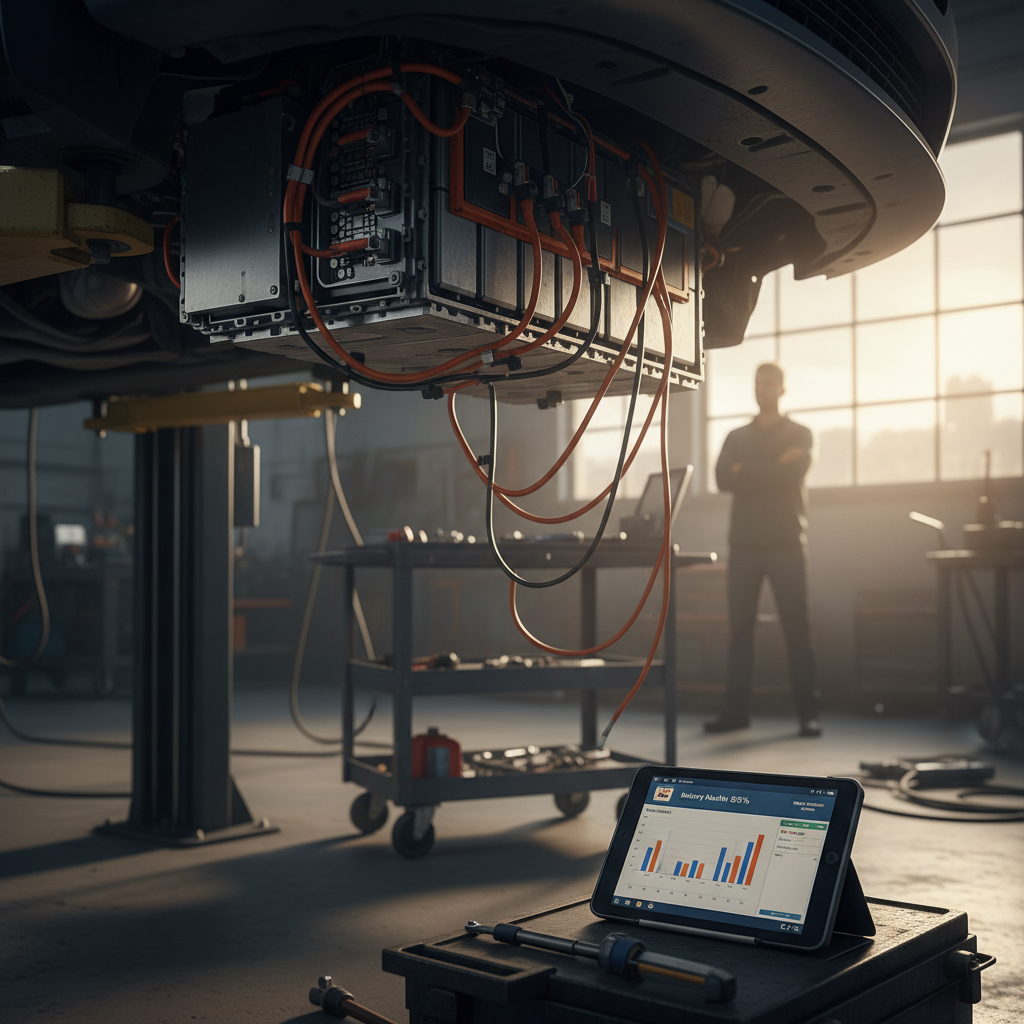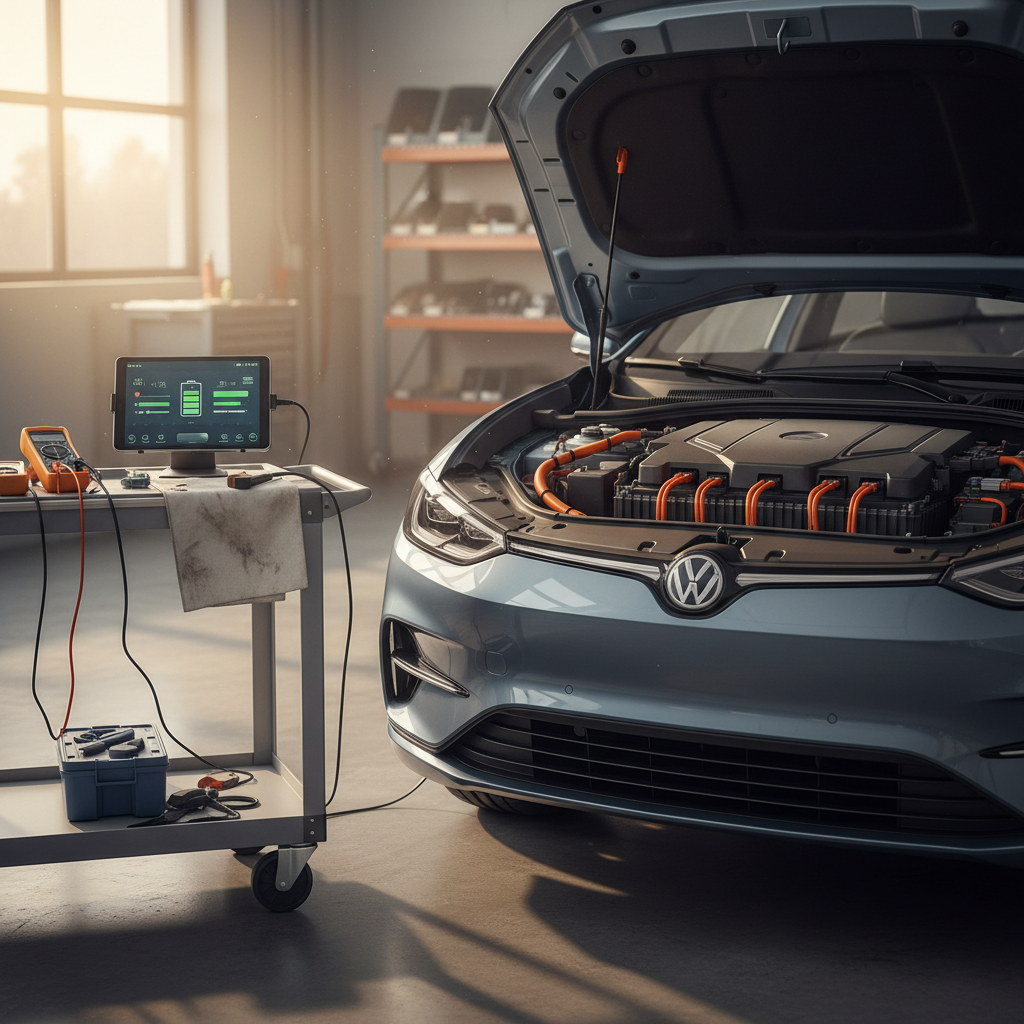When you google “car maintenance shops near me”, you’re usually not browsing for fun, you’ve got a warning light on, a strange noise under the hood, or a long trip coming up. Picking the right shop can mean the difference between fair, transparent service and paying too much for repairs you didn’t need, especially as more of those “cars near me” are now hybrids and electric vehicles.
Big picture
Why “car maintenance shops near me” really matters
Modern vehicles are durable, but they’re also complex. A typical gasoline car has thousands of moving parts; electric vehicles have far fewer, but add high‑voltage batteries, software, and specialized cooling systems. Skipping or delaying service to avoid the hassle of the shop search can lead to bigger bills later, whether that’s a failed catalytic converter on a gas car or premature battery wear on an EV.
Why choosing the right shop pays off
Don’t wait for a breakdown
Types of car maintenance shops near you
Common shop types you’ll see in search results
Each has strengths and tradeoffs, what matters is matching them to your needs.
Franchise & chain stores
Think national tire, brake, and oil‑change chains. They’re easy to find and often run promotions.
- Best for: Routine items, oil changes, brakes, tires, alignments.
- Watch for: Upsells on fluid flushes or “packages” you may not need.
Independent neighborhood shops
Locally owned garages with one or a few locations.
- Best for: Ongoing relationship, general repairs, and honest advice.
- Watch for: Inconsistent training, look for ASE certification and modern equipment.
Dealership service departments
Factory‑branded shops tied to a specific automaker.
- Best for: Warranty work, recalls, complex electronic or EV issues.
- Watch for: Higher labor rates and a tendency to replace rather than repair.
EV & hybrid specialists
These shops focus on battery‑electric and hybrid vehicles. They invest in high‑voltage safety training, battery‑diagnostic tools, and brand‑specific software.
- Ideal if you drive a Tesla, Nissan Leaf, Chevy Bolt, Hyundai Ioniq, or another popular EV.
- Look for clear experience with your make and model, not just “we work on EVs.”
Body shops and mobile services
Body shops handle collision damage, paint, and structural repairs, while mobile mechanics come to your driveway for lighter work.
- Great for cosmetic repairs, glass, or convenience services.
- Typically not the right choice for deep diagnostics or complex EV issues.
How to quickly shortlist shops near you
When you type “car maintenance shops near me” into Google, you’ll see dozens of blue dots and star ratings. To get from a wall of options to a realistic shortlist of three to five candidates, use a simple system: recommendations, online research, and a low‑risk trial visit.
Fast way to build a shortlist
1. Ask people who drive what you drive
Text or call friends, coworkers, or neighbors with similar vehicles. Owners of hybrids and EVs are especially good sources, since they’ve already navigated the “who can service this?” question.
2. Use trusted directories, not just ads
Filter Google Maps results by rating and review count. Cross‑check with sources like AAA‑Approved shops or well‑known repair‑cost sites. Focus on <strong>patterns</strong> in reviews, not one‑off complaints.
3. Confirm they work on your vehicle type
Before you drive over, call and ask: “Do you regularly service my make and model, and do you work on hybrids/EVs?” A shop that hesitates is telling you something important.
4. Start with small, scheduled work
Use an oil change, tire rotation, or cabin filter replacement as a tryout. You’re buying information: how they communicate, how they price, and whether they recommend only what you truly need.
Pro move
What makes a car maintenance shop trustworthy
A clean waiting room and a shiny website are nice, but they don’t guarantee competence or fair pricing. To separate truly professional operations from “we’ll see what we can get,” focus on credentials, transparency, and process.
Key trust signals to look for
If a shop hits most of these, you’re on the right track.
ASE certifications
The National Institute for Automotive Service Excellence (ASE) certifies technicians in specific areas, brakes, engines, electrical, hybrids, and more.
Look for blue ASE plaques in the lobby and patches on uniforms. For complex work, ask if an ASE Master Technician will oversee the repair.
Clear estimates & authorizations
A good shop will:
- Provide written estimates before work starts.
- Separate parts and labor on the invoice.
- Call you before doing anything beyond the original estimate.
Strong parts & labor warranties
Many reputable shops back repairs for at least 12 months/12,000 miles, and often longer on major work.
Higher‑quality parts usually come with better warranties, ask what they’re using and why.
Red flags
Special considerations for EV maintenance
If you already own an EV, or you’re thinking about buying a used one, your search for “car maintenance shops near me” needs an extra layer: can this shop safely and competently work on high‑voltage vehicles? The answer is not always yes.

- EVs need fewer routine services, no oil changes, spark plugs, or exhaust repairs, which can significantly cut long‑term maintenance costs.
- Tires may wear faster because EVs are heavier; more frequent rotations and quality tires matter for safety and range.
- Brakes often last longer thanks to regenerative braking, but the system still needs periodic inspection and fluid changes.
- Battery health is critical, a good shop can run diagnostics on state of health (SoH), temperature management, and charging behavior rather than guessing.
Where Recharged fits in
For EV owners, it’s smart to have both a general mechanic for tires and suspension and a shop or dealer with proven EV expertise for battery, high‑voltage, and software issues. Don’t assume every corner garage is ready for that yet.
Dealership vs. independent shop vs. EV specialist
Which type of shop is right for this job?
Use this to match the repair or service you need with the type of shop that’s likely to offer the best value and expertise.
| Service type | Dealership service | Independent shop | EV/hybrid specialist |
|---|---|---|---|
| Oil change & filters (gas) | Good but pricey | Often best value | Not applicable |
| Tires, brakes, alignment | Good, especially for leased cars | Often best mix of price and quality | Good for heavy EVs |
| Check‑engine light (gas) | Strong diagnostics | Good if well‑equipped | May not focus on gas diagnostics |
| Battery or high‑voltage issue (EV) | Usually required under warranty | Only if EV‑trained | Often best choice out of warranty |
| Software & recalls | Best/only option | Limited access | Some models, depending on brand |
| Body & paint | Sometimes, but expensive | Varies widely | Special EV‑approved body shops recommended |
You’ll often save money by using independents for routine work and reserving dealerships or EV specialists for warranty, recall, and complex issues.
Simple rule of thumb
How to talk to your mechanic and avoid surprises
Even the best shop can’t read your mind, and vague descriptions lead to trial‑and‑error repairs. A little prep before you pull into that “car maintenance shop near me” goes a long way.
- Describe symptoms, not diagnoses. Say “there’s a grinding noise at 30–40 mph when I brake lightly,” not “I need new rotors.”
- Share context. Mention recent work, dash lights, road‑trip miles, or curb hits. It helps the tech zero in on the cause.
- Ask for priorities. If the estimate includes multiple items, ask what must be done today versus what can wait.
- Request your old parts. It’s a simple way to verify the work and can discourage unnecessary replacements.
- Clarify communication. Confirm whether they’ll call, text, or email before doing additional work and who has approval authority.
Good shops welcome questions
Key costs and warranties to compare between shops
Sticker shock at the counter usually comes from missing information, not malice. When you compare “car maintenance shops near me,” use these simple cost questions to keep things apples‑to‑apples.
Four things to ask every shop
You don’t need a degree in finance, just these basics.
Labor rate & book time
Ask for the hourly labor rate and how they calculate time for the job (manufacturer labor guide, flat‑rate menu, or actual time).
Sometimes a slightly higher rate with honest book times beats a low rate with padded hours.
Parts quality options
Many jobs have choices: OEM (factory), reputable aftermarket, or budget parts.
Have the shop explain the options and warranties. Paying a bit more for higher‑quality parts can save you repeat visits.
Written warranties
Get the warranty on paper or email. Note what’s covered (parts, labor, both) and for how long or how many miles.
Shop fees & extras
Ask about diagnostic charges, shop supplies, disposal fees, and payment policies. Surprises often hide in the fine print, not the base price.
Step-by-step checklist to choose the right shop
Your decision checklist (gas, hybrid, or EV)
1. Confirm they service your powertrain
Gas, hybrid, or full electric, ask specifically which systems they’re comfortable with. For EVs, ask about high‑voltage training and diagnostic tools.
2. Verify certifications and equipment
Look for ASE certifications, up‑to‑date scan tools, and, for EVs, proper safety gear. A good shop will gladly tell you about their training.
3. Run a small-test visit
Schedule a minor service. Evaluate how they explain the work, how the car feels afterward, and whether the invoice matches the estimate.
4. Compare at least two estimates for big jobs
For anything over a few hundred dollars, get a second opinion. If one quote is dramatically higher, ask why, sometimes there’s a genuine difference in scope.
5. Decide if the experience fits your life
Consider location, hours, loaner cars, shuttles, or rideshare credits. A slightly more expensive shop that respects your time may be worth it.
6. For EVs, plan long-term
Ask how they handle battery health checks, software updates, and cooling system maintenance. If you bought a used EV from Recharged, use your <strong>Recharged Score Report</strong> as a starting point.
FAQ: Car maintenance shops near me
Frequently asked questions
Finding the right shop today, and planning for an EV tomorrow
When you search for “car maintenance shops near me”, you’re really looking for peace of mind: a place that fixes the car correctly, charges fairly, and respects your time. The right shop doesn’t just swap parts; it becomes a partner in keeping your vehicle, gas or electric, safe, efficient, and enjoyable to drive.
If you’re already driving an EV or thinking about your first one, the equation gets even better. Electric vehicles typically need less routine maintenance, and with tools like Recharged’s Recharged Score battery health report, fair‑market pricing, and EV‑specialist guidance, you can step into used EV ownership with real confidence. Find a trustworthy shop now, lean on transparent data when you buy your next car, and you’ll spend a lot more time driving, and a lot less time worrying about what’s happening in the service bay.


